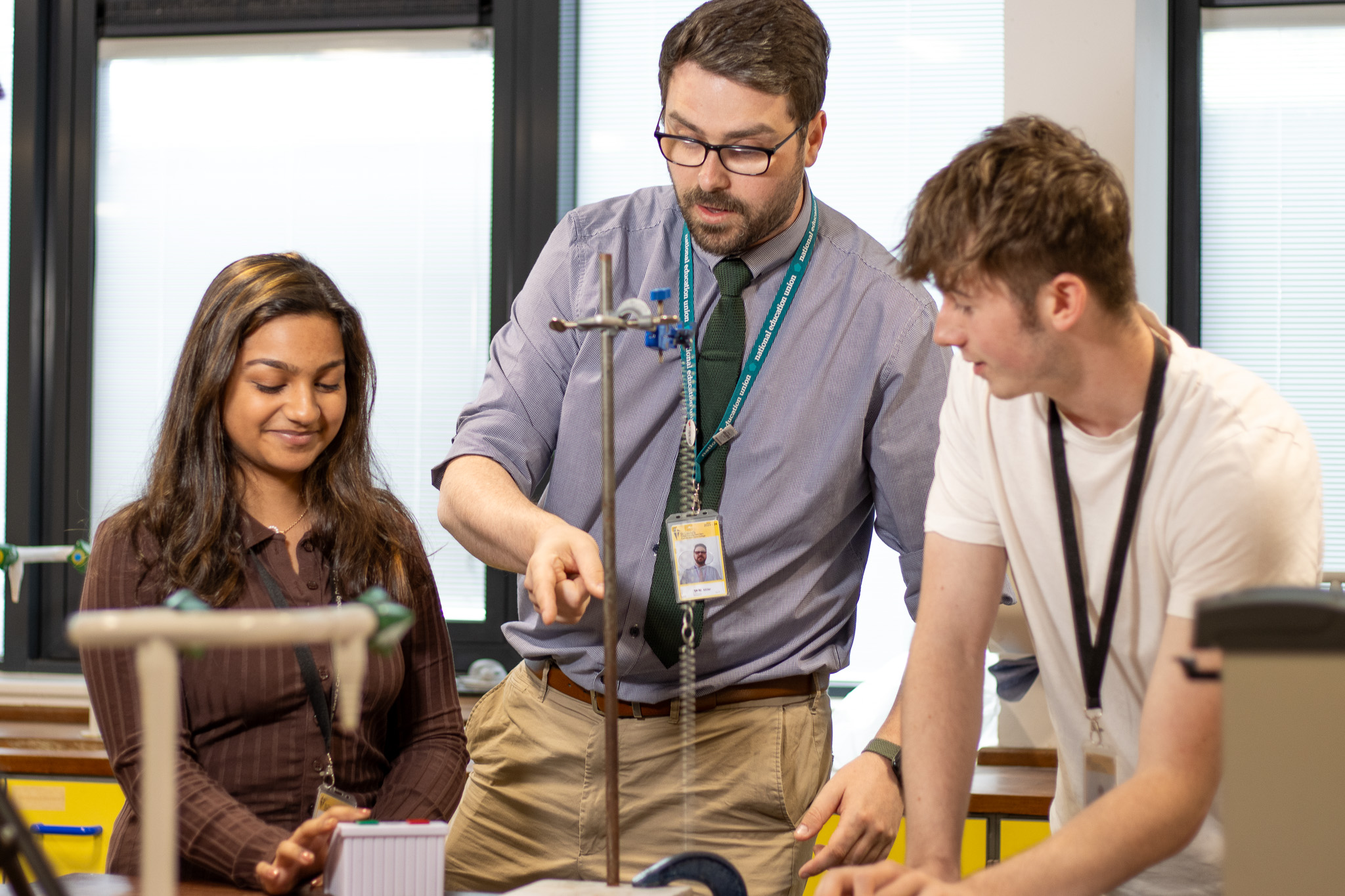
Physics A Level
Qualification
AS & A2
Results
A* - A grade: 33.3%
Awarding Body
WJEC
Physics A Level Overview
Physics A Level at AS combines the best of traditional Physics topics like mechanics, materials, electricity, and radiation with modern ideas involving astronomy, quantum, and particle Physics. The A2 course allows students to develop their understanding of physics in medical settings while covering essential fundamental topics such as fields, nuclear physics, and kinetic theory.
The full A Level in Physics provides a solid foundation for students who wish to pursue Higher Education in fields like Physics, Engineering, Materials Science, Geophysics, Medicine, Veterinary Science, and other scientific careers.
A famous quote by the late Professor Richard Feynman of Caltech states, “If you are a physicist, you can be everything.” Physics holds a high regard among employers and Higher Education institutions. It does not limit students’ progression in any career; instead, it enhances their qualification profile.
AS Level (year 1) – 40% of qualification
Unit 1: Motion, Energy & Matter (20%)
90 minute written paper
Mix of short and extended answer questions with some in a practical context
Unit 2: Electricity & Light (20%)
90 minute written paper
Mix of short and extended answer questions with some in a practical context
A2 Level (year 2) – 60% of qualification
Unit 3: Oscillations & Nuclei (25%)
2hr 15min written exam split into two sections:
Section A: Mix of short and extended answer questions with some in a practical content.
Section B: One comprehension-style question.
Unit 4: Fields & Medical Physics (25%)
2hr written exam split into two sections:
Section A: Mix of short and extended answer questions with some in a practical context.
Section B: Medical Physics questions.
Unit 5: Practical Physics (10%)
Experimental task and analysis task completed individually in the Physics laboratory under exam conditions.
All examinations for A Level Physics are held in May/June. Students are expected to have a record of all practical skills development in a ‘lab book’ that is kept in College.
The full A Level in Physics provides the basis for students who wish to proceed to Higher Education to study Physics, Engineering, Materials Science, Geophysics, Medicine, Veterinary Science and other scientific careers.
A famous quote by the late Professor Richard Feynman of Caltech ‘If you are a physicist you can be everything.’ Quite simply Physics is regarded very highly as a qualification by employers and Higher Education. It does not restrict students’ progression in any career as it enhances their qualification profile.
6 grade C’s at GCSE, including a grade A in GCSE Maths, a grade BB at Double Award GCSE Science OR grade B in higher tier Physics, and a grade B in GCSE English.
A grade B in a discursive subject like History, Religious Studies or English Literature can be used as an alternative for English.

